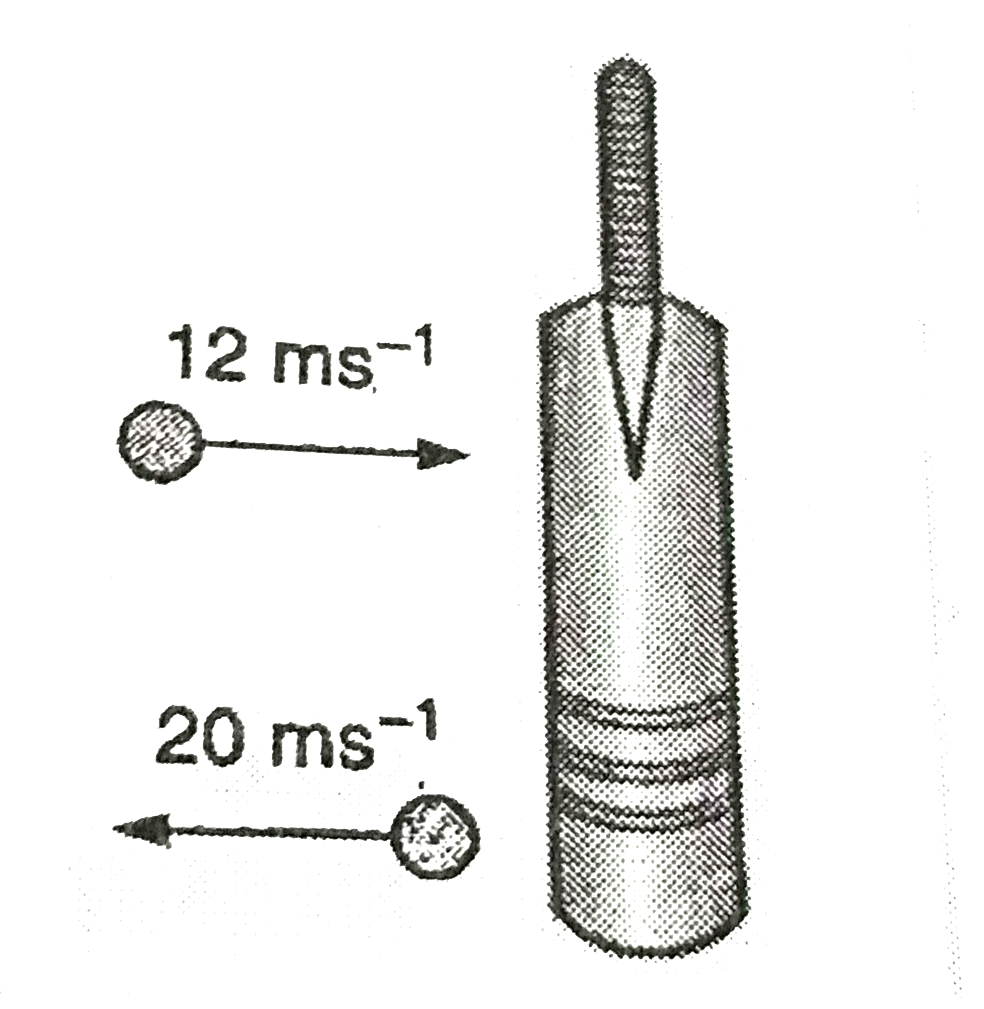A cricket ball of mass 150 kg is moving with a velocity of 12m/s and is hit by a bat so that ball is turned back with a velocity of 20m/s . The force of the blow acts for 0.01 s on the ball . Find the average force exerted by the bat on the ball.
The correct Answer is:−480N
Step by step video, text & image solution for A cricket ball of mass 150 kg is moving with a velocity of 12 m//s and is hit by a bat so that ball is turned back with a velocity of 20 m//s . The force of the blow acts for 0.01 s on the ball . Find the average force exerted by the bat on the ball. by Physics experts to help you in doubts & scoring excellent marks in Class 11 exams.
Updated on:21/07/2023Topper's Solved these Questions
Similar Questions
cricket ball of mass 150 g is moving with a velocity of 12m/sec and is hit by a bat so that the ball is turned back with a velocity of 20m/sec, the force on the ball acts for 0.01 sec, then the average force exerted by the bat on the ball will b
View Solution6A cricket ball of mass 250 gm moving with a velocity of 24 m/s is hit by a bat so that it acquires a velocity of 28 m/s in the opposite direction. The force acting on the ball, if the contact time is 1/100 of a second, will be -
View Solution
Knowledge Check
A cricket ball of mass 150g is moving with a velocity of 12 m/s and is hit by a bat so that the ball is turned back with a velocity ishit by a bat so that the ball is turned back with a velocity of 20 m/s. The force of blow acts for 0.01 s on the ball. What is the averate force exerted by the bat on the ball?
A240NB300NC380ND480NA cricket ball of mass 150 g is moving with a speed of 12ms−1 and is hit by a bat so that the ball is turned back with velocity of 20ms−1 if duration of contact between bat and ball is 0.01 s then:
 Aimpulse of force is 4.8 NsBaverage force exerted by bat is 480 NCretarding of the ball is 3200ms−2Dchange in momentum of the ball is 1.2kgms−1
Aimpulse of force is 4.8 NsBaverage force exerted by bat is 480 NCretarding of the ball is 3200ms−2Dchange in momentum of the ball is 1.2kgms−1According to Newton s second law of motion F=ma where F is the force required to produce an acceleration a in a body of mass m If a = 0 then F=0 no external force is required to move a body uniformly along a straight line If a force F acts on a body for t seconds the effect of the force is given by Impulse =F × t = change in linear momentum of the body
A cricket ball of mass 150g is moving with a velocity of 12m/s and is hit by a bat so that the ball is turned back with a velocity of 20m/s if duration of contact between the ball and the bat is 0.01sec The impulse of the force is .A7.4N−sB4.8N−sC1.2N−sD4.7N−s
A ball of mass 1kg moving with a velocity of 15m/s undergoes a head on elastic collision with another ball of unknown mass at rest, and rebound with a velocity of 10m/s. What is the mass of the other ball?
View SolutionA ball of mass 0.2 kg moves with a velocity of 20m/sec and it stops in 0.1 sec , then the force on the ball is
View SolutionA ball of mass 0.5kg moving with a velocity of 2m/s strikes a wall normally and bounces back with the same speed . If the time of contact between the ball and the wall is 1 millisecond , the average force exerted by the wall on the ball is
View SolutionA cricket ball of 0.5kg moving with a velocity of 100ms−1The wavelength associtated with in motion is
View SolutionA cricket ball of mass 0.5 kg strikes a circket bat normally with a velocity of 20 m s−1 and rebounds with a velocity of 10 m s−1. The impulse of the force exerted by the ball on the bat is
View Solution
